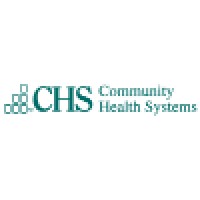
Community Health Systems
Community Health Systems is one of the nation’s leading healthcare providers. Developing and operating healthcare delivery systems across 14 states, CHS is committed to helping people get well and live healthier. CHS affiliates operate 70 acute-care hospitals and more than 1,000 other sites of care, including physician practices, urgent care centers, freestanding emergency departments, occupational medicine clinics, imaging centers, cancer centers and ambulatory surgery centers.






